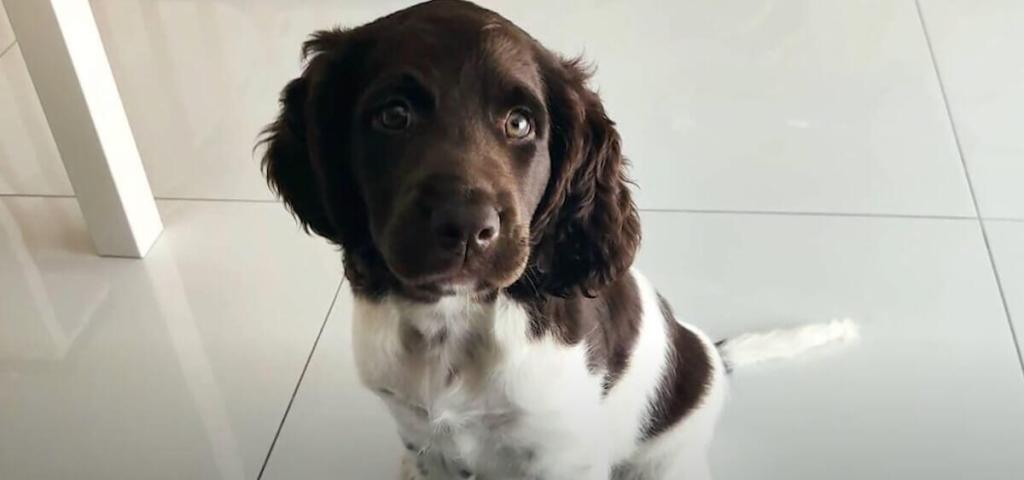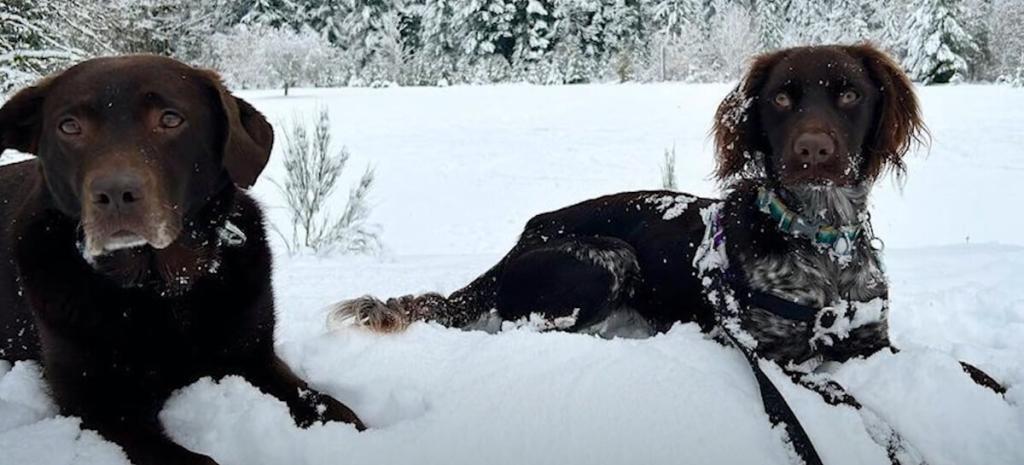As you contemplate the intricate tapestry of dog breeds, the Small Munsterlander Pointer emerges as a thread woven with precision and purpose. Originating from the verdant landscapes of Germany, this breed’s heritage is steeped in tradition, having been honed over centuries for its hunting prowess.
The Small Munsterlander Pointer is a hunter’s companion and a versatile and adaptable family dog known for its intelligence, trainability, and friendly demeanor. Its lush coat and keen eyes may draw you in, but its steadfast loyalty and aptitude in various canine roles truly set it apart.
To fully appreciate the nuances of this breed, one must consider not only its historical lineage but also the practical aspects of integrating such a spirited and skilled animal into modern life. What lies ahead is a journey through the complexities of its temperament, care, and the symbiotic relationship it can offer to those who are willing to understand its unique nature.
- Noise Level
- Energy
- Sociability
- Trainability
- Care
- Health
Overall
Summary
The Small Munsterlander Pointer is rated as moderately noisy, highly energetic, very sociable, highly trainable, moderately high maintenance, and relatively healthy among dog breeds.
Small Munsterlander Pointer: Traits, Temperament, and Care Guide
The Small Munsterlander Pointer, a versatile and intelligent breed, exhibits a balanced temperament, making it both an adept hunting partner and a loyal family companion. Originating from Germany’s Munsterland region, this German hunting breed thrives on actively participating in the field.
You must provide ample exercise and mental stimulation to harness their potential as versatile hunting dogs. Incorporate training classes early to capitalize on their eagerness to learn.
As an affectionate family pet, the Small Munsterlander’s care guide emphasizes their adaptability—comfortable in a house environment or an outside kennel run. Engage with clubs and breeders to ensure you’re meeting the breed’s unique needs, fostering a sense of belonging within the community of Small Munsterlander enthusiasts.
Exploring the Characteristics of the Small Munsterlander Pointer
Delving into the characteristics of the Small Munsterlander Pointer, you’ll find a breed that seamlessly blends agility, intelligence, and a keen hunting instinct. As a pointing dog, it exhibits a strong prey drive, essential for hunting upland game. The breed’s adaptability makes it an excellent house dog, yet it retains the energy needed for the field.
| Origin | Training | Adaptability |
|---|---|---|
| Munsterland | Easy, quick | Good house dog |
| Versatile | Starts in first fall | Apartment friendly |
| Upland gamebirds | Not fully matured | Increases energy during hunts |
| Waterfowl | Hunting training | Calm indoors |
High standards in breeding practices are crucial to maintaining the breed’s health and hunting capabilities and minimizing genetic health problems. To belong to the Small Munsterlander community, engage with breed clubs and responsible breeders.
Small Munsterlander Pointer: A Comprehensive Profile and Guide
You’ll find the Small Munsterlander’s origins rooted in Germany’s Munsterland region, where they were honed to track and retrieve game with remarkable efficiency.
Their training aptitude extends from innate retrieving to structured exercises, enhancing reliability in the field.
When considering adoption, scrutinize the breeder’s health screenings and objectives, as these are pivotal for acquiring a sound and well-bred companion.
Everything You Need to Know
Embarking on the journey to understand the Small Munsterlander Pointer, it’s essential to delve into its rich development history and distinctive training abilities, which have shaped this breed into an adept hunter and a loyal house companion.
As a descendant of German Longhaired Pointers, the Small Munsterlander has carved its niche as a versatile bird dog, prized for its hunting prowess.
Here’s what you need to know:
- Development History: Originating from Germany, the Small Munsterlander evolved from versatile hunting dogs.
- Training: Exceptional training is crucial for honing the breed’s natural hunting instincts.
- Health Issues: Awareness of potential hereditary health problems is key to ensuring a robust companion.
- Exercise and Mental Stimulation: Adequate physical and mental exercise is imperative to maintain the breed’s well-being.
These facets are vital for anyone aspiring to join the Small Munsterlander community.

Discovering the Temperament
When exploring the temperament of the Small Munsterlander Pointer, it’s crucial to note their inherent self-confidence and adaptability, traits that contribute to their mild yet enthusiastic demeanor.
- As an affectionate family pet, the Small Munsterlander bonds deeply, providing companionship that is as steadfast at home as it is during game hunting.
- Their energy levels necessitate regular physical and intellectual engagement to maintain good manners and prevent the emergence of undesirable behaviors.
- Their intelligence shines through in their eagerness to please, making them easy to train for various terrains and tasks.
- However, it’s imperative to approach their education with patience and gentleness, leveraging their natural abilities and inclinations.
A well-exercised Small Munsterlander, given consistent mental stimulation, is a content and well-adjusted member of any pack.
Small Munsterlander Pointer: Is It a Good Fit for Families?
You might wonder if the Small Munsterlander’s temperament suits a family environment. Its inherent sociability and trainability suggest it can integrate smoothly into family dynamics, provided that its physical and mental stimulation needs are met.
Furthermore, due to selective breeding practices, the breed’s robust health implies a potentially lower burden of care for families.
Assessing Small Munsterlander Pointer’s Compatibility with Families and Kids
When considering a Small Munsterlander Pointer as a new family member, it’s crucial to analyze its traits and behaviors to ensure they align with the dynamics and lifestyle of a household with children.
- Temperament: The breed is affectionate, adaptable, and mild-mannered. Small Munsterlanders typically exhibit a family-friendly disposition, making them well-suited to the varied demands of family life.
- Trainability: They respond well to gentle, patient training due to their intelligence, which is advantageous in households with kids.
- Health: Their robustness and low instances of congenital diseases present a reliable choice for families seeking a durable, long-term pet.
- Exercise and Socialization: Meeting their exercise needs and providing adequate socialization will ensure they remain balanced and good with families, including those with children.
Small Munsterlander Flexibility
Small Munsterlander Pointers exhibit remarkable adaptability across diverse hunting landscapes, demonstrating their inherent flexibility in open fields and dense forests. They thrive in hunting homes where their skills can be honed, precisely tracking small game.
As you seek out Small Munsterlander breeders, it’s essential to consider that early development shapes these highly intelligent dogs into adept hunters, especially in bird hunting.
To ensure their well-rounded growth, providing plenty of daily exercise is a good idea. This breed’s flexibility extends to its dual nature; it easily switches from vigorous hunting partners to tranquil household pets. Remember, consistent engagement—both mental and physical—is crucial.
Training Small Munsterlander Retrieval
As you train your Small Munsterlander in retrieval, it’s crucial to tailor your approach to their learning pace and innate abilities.
You’ll find that employing force-fetching techniques aligns with NAVHDA and German-type testing standards, ensuring your dog’s retrieval reliability.
Remember that while Small Munsterlanders may exhibit natural retrieving instincts, structured training from an early age enhances their performance and consistency in the field.
Effective Training Strategies
Harnessing the innate retrieval instincts of the Small Munsterlander Pointer requires a consistent and positive approach to training, beginning early to ensure a reliable performance in the field. Utilize positive reinforcement; rewarding good behavior promptly will foster a strong bond and eagerness to learn. Since the breed excels in searching and pointing, these natural tendencies should be channeled through structured dog training exercises.
Joining a Small Munsterlander Club or a reputable training organization offers access to specialized knowledge and community support, crucial for novice and experienced handlers. Here’s a focused approach:
| Training Aspect | Key Consideration |
|---|---|
| Retrieval | Adapt force-fetching methods to individual maturity |
| Obedience | Start with house and kennel training for discipline |
| Testing | Engage in NAVHDA or German-type tests for assessment |

Exercise and Grooming Needs
To ensure optimal health and happiness, you must provide your Small Munsterlander Pointer with daily exercise and adhere to a consistent grooming routine. These dogs need plenty of physical activity to mitigate risks of conditions such as hip dysplasia—a concern in active breeds. Implement a rigorous schedule of long walks, runs, and interactive playtime to sustain their physical and mental well-being.
Regular brushing is necessary for grooming to manage their medium-length coat and minimize loose hair, which is important if they live inside with family members. This breed sheds a significant amount, so incorporate frequent brushing sessions. Additionally, they maintain their hygiene with occasional baths, nail trims, and diligent dental care to prevent oral issues. These practices are essential to keep your Small Munsterlander in top condition.
Health Considerations
When considering a Small Munsterlander Pointer, you must evaluate common health issues and the breed’s typical lifespan.
Breeders’ engagement in health programs and genetic screening mitigates risks of hereditary conditions, ensuring a robust lineage.
Proactive care, including regular vet visits and monitoring for skin and ear issues, particularly after swimming, is crucial in extending your dog’s health span and quality of life.
Common Health Issues and Lifespan
Small Munsterlander Pointers typically enjoy robust health, yet like all breeds, they face certain genetic risks that potential owners should consider before adoption. To secure your Small Munsterlander’s well-being, engaging with a reputable breeder who adheres to the United Kennel Club’s health guidelines is crucial. This includes genetic health evaluations and certified hip assessments, pivotal in mitigating inherited conditions.
Maintaining your dog’s health involves regular veterinary check-ups and keeping their weight within recommended ranges to prevent stress on joints and organs. The Small Munsterlander’s lifespan generally spans 12-14 years, a testament to their overall resilience when properly cared for. An optimal balance of grooming, nutrition, and exercise is paramount, as is selecting a breeder who utilizes a rigorous testing organization for health clearances.
Is Small Munsterlander Pointer the Right Dog for You?
Determining whether a Small Munsterlander Pointer aligns with your lifestyle and hunting needs is crucial before considering this breed as your next canine companion. Analyze your daily routine to ensure you can provide the physical activity and mental stimulation this versatile hunting dog requires.
As dog breeds go, the Small Munsterlander is renowned for its adaptability, both as the best dog for active outdoor adventures and a loving member of the family and friends circle. Engage with breed-specific rescue groups and visit a shelter or rescue to observe the breed’s behavior firsthand.
Ask the breeder about their objectives, and seek insight into personalized training programs. Committing to a Small Munsterlander means embracing a dog eager to belong and dedicated to being the right dog for you.
Alternatives for Small Munsterlander Pointer: Versatile and Friendly Sporting Dogs
For those who adore the Small Munsterlander Pointer’s versatility and friendliness, these sporting breeds offer a similar blend of adaptability and sociability.
| Similar Dogs | Short Description |
|---|---|
| German Shorthaired Pointer | Versatile in hunting and known for its friendly, eager-to-please nature. |
| Vizsla | A Hungarian breed known for its hunting skills and affectionate nature. |
| Brittany | Energetic and agile, perfect for hunting and as a family pet. |
| English Springer Spaniel | Energetic and affectionate, ideal for families and outdoor activities. |
| Wirehaired Pointing Griffon | Known for its keen hunting ability and friendly disposition. |
Conclusion
In sum, the Small Munsterlander Pointer is a versatile hunting companion, akin to a Swiss Army knife for outdoors enthusiasts. With its cooperative nature and keen intelligence, training is a breeze, but don’t skimp on the exercise or grooming.
Though generally robust, vet visits are your safety net for maintaining its health. This breed could complete your family’s puzzle if a harmonious blend of vigor, affection, and utility appeals to you.
